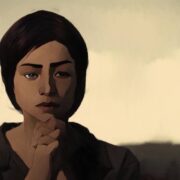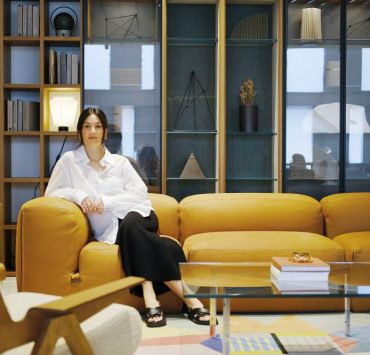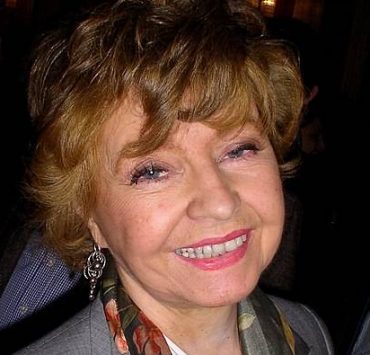Steve Toussaint on Dance of the Dragons upending life in the Seven Kingdoms
We were on the edge of our seat as we watched Queen Rhaenyra Targaryen (Emma D’Arcy) start consolidating her gains—and dragons—in the Season 2 finale of HBO Go’s “House of the Dragon” (HOTD) last Monday.
But as Ser Criston Cole (Fabien Frankel) cautions Ser Gwayne Hightower (Freddie Fox) in a very telling confrontation, “The dragons dance, and men are like dust under their feet.” Indeed, Rhaenyra is very much aware that there are sacrifices to be made even as the stars begin to align for her and Team Black.
More than those upheavals, we see Prince Daemon (Matt Smith) finally lowering his ego-driven guard and softening his unbending perspective as he sees the prophecy of what looks like Daenerys (played by Emilia Clarke in “Game of Thrones”) finding her dragon eggs in the future, not to mention a vision of a White Walker. How exciting!
As showrunner Ryan Condal aptly describes it, while Season 2 has launched “the fits and starts of an early medieval war,” it will soon be followed by a bloody, all-out battle in the series’ eagerly anticipated third season.
Meanwhile, Lord Corlys Velaryon (Steve Toussaint) pays tribute to his fallen wife, Princess Rhaenys (Eve Best), by switching the name of his ship—from Sea Snake to Queen Who Never Was.
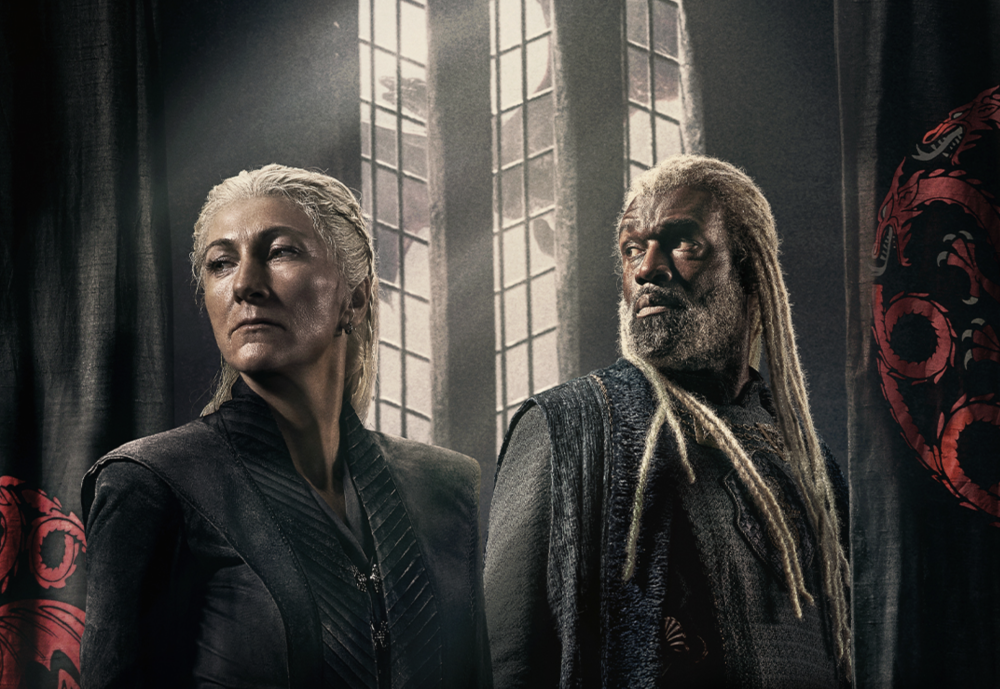
To commemorate HOTD’s Season 2 finale, we’re sharing our recent one-on-one chat with Steve:
Now that you have wrapped up filming Season 2, what do you think sets it apart from the pilot season? The centerpiece of this story is the Dance of the Dragons. It is about that particular battle. A lot of Season 1 was preparing people to get to know who everybody is and hopefully develop some kind of empathy with those characters.
And then, we had those big jumps in time because we had to get the characters in place for what’s going to happen in subsequent seasons. So in Season 2, you now get a chance to look at these characters with more depth and see other aspects of them.
Like, I can only speak for myself in the sense that in the first season, my character is very much on the front foot. He’d say, “We’re going to do this, this is how it’s going to work and so forth.” But for the second season, you’re seeing Corlys’ slightly more reactive and emotional side. And I certainly think that’s the same for quite a few other characters.
“House of the Dragon” introduced you and the other cast members to the global audience in a big way. How are you handling the popularity and stardom that came with its success? I don’t really feel like a star because if I did, I’d be throwing my weight around a lot—oh my gosh, I’d be awful (laughs). I don’t pay attention to that, I focus on the more positive things. And the stuff that I read on social media has been quite lovely.
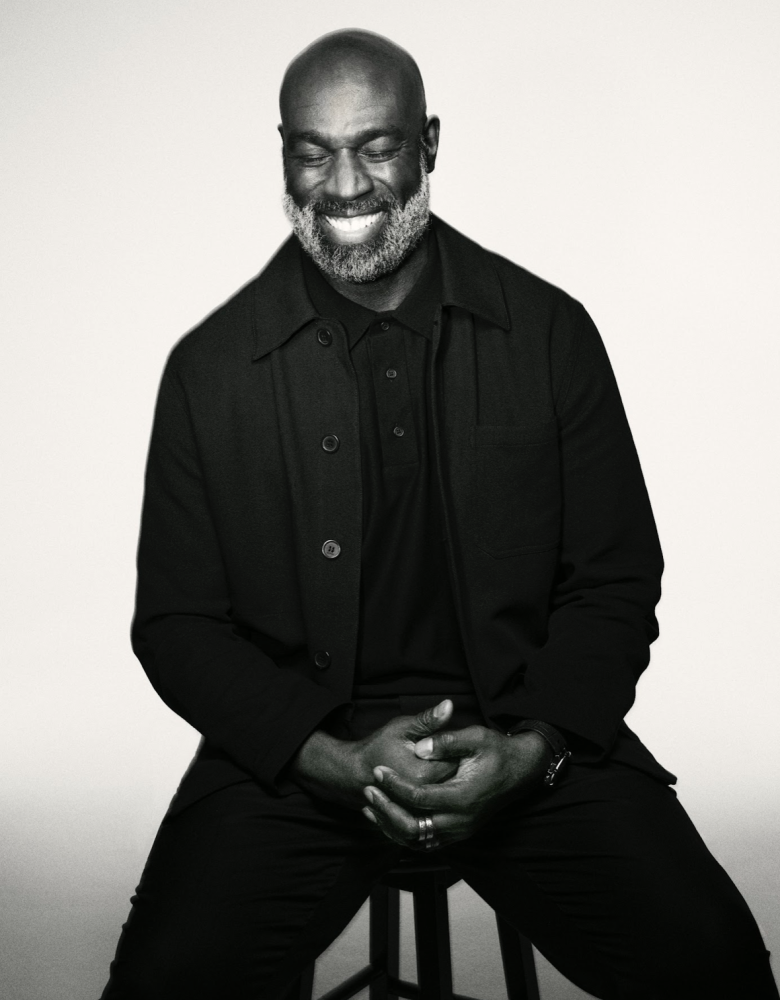
I’m so happy that people like the show, that they take it to their heart and feel invested in it. I think that’s a wonderful thing. Look, you can go on your whole career as a performer and never have that [measure of success]. So I feel privileged about that. But in terms of coping with popularity, I don’t think that we think about it, really. You honestly just go about your daily life.
When we were about to come out in Season 1, somebody who was traveling with me kept asking, “Are you prepared for how your life’s going to change because of this?” And I was like, “Nah … because I’m not going to change!” It probably just made me much more financially secure (laughs), but I still do the exact same things.
Occasionally, a stranger might smile at me or call me by my character’s name, but it’s not like how it is with someone like Matt Smith, who was already dealing with that sort of situation when he played Doctor Who [in the long-running sci-fi series]. Matt told me some horrendous stories about how his life changed [because of that role], and I was like, “I would not want that for the world!”
The other thing for me is, I look very different from my character, Lord Corlys, because of the hair and the beard—and that particular look tends to be what people remember seeing.
After two seasons, how would you weigh in on Lord Corlys’ relationship with Princess Rhaenys? I do like Rhaenys and Corlys as a couple. When Eve and I were talking to [showrunner] Ryan Condal as we were creating our characters, one of the first questions we asked was: Is their relationship forged on love, or is this mere strategy?
But he and [Season 1 coshowrunner] Miguel Sapochnik were unequivocal in saying that there was really love between them, and I was so glad they said that because that’s what I wanted it to be … that it wasn’t a political thing. Corlys liked this woman and he wanted her to be his wife. That has been the cornerstone of their relationship.
That’s one of the reasons I consider it to be one of the healthiest relationships in this series. And it’s also one of the reasons why people like them. It’s probably the show’s only healthy relationship.
There are also many aspects of their relationship that we could call modern, in the sense that they talk and listen to each other, they advise each other. One of Corlys’ many flaws is that he doesn’t always listen immediately, but he does come around.
I like the fact that, even in this incredibly patriarchal society, he respects his wife and constantly champions her as being the best ruler she could have been. He’s quite happy to say that she should have been the queen!
Catch all the episodes of the first two seasons of “House of the Dragon” on HBO Go.













